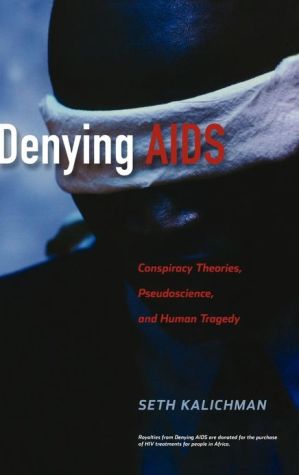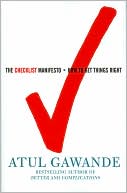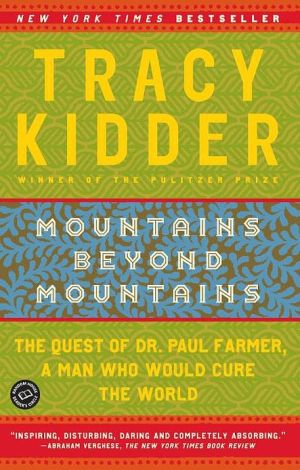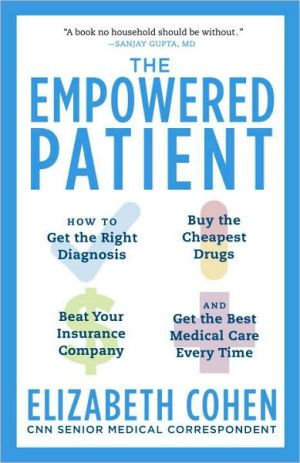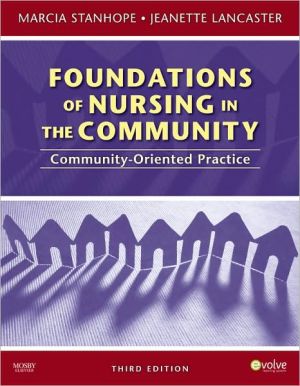Denying AIDS: Conspiracy Theories, Pseudoscience, and Human Tragedy
Paralleling the discovery of HIV and the rise of the AIDS pandemic, a flock of naysayers has dedicated itself to replacing genuine knowledge with destructive misinformation—and spreading from the fringe to the mainstream media and the think tank. Now from the editor of the journal AIDS and Behavior comes a bold exposé of the scientific and sociopolitical forces involved in this toxic evasion. Denying AIDS traces the origins of AIDS dissidents disclaimers during the earliest days of the...
Search in google:
Paralleling the discovery of HIV and the rise of the AIDS pandemic, a flock of naysayers has dedicated itself to replacing genuine knowledge with destructive misinformation—and spreading from the fringe to the mainstream media and the think tank. Now from the editor of the journal AIDS and Behavior comes a bold exposé of the scientific and sociopolitical forces involved in this toxic evasion. Denying AIDS traces the origins of AIDS dissidents disclaimers during the earliest days of the epidemic and delves into the psychology and politics of the current denial movement in its various incarnations.Seth Kalichman focuses not on the “difficult” or doubting patient, but on organized, widespread forms of denial (including the idea that HIV itself is a myth and HIV treatments are poison) and the junk science, faulty logic, conspiracy theories, and larger forces of homophobia and racism that fuel them. The malignant results of AIDS denial can be seen in those individuals who refuse to be tested, ignore their diagnoses, or reject the treatments that could save their lives. Instead of ignoring these currents, asserts Kalichman, science has a duty to counter them.Among the topics covered: Why AIDS denialism endures, and why science must understand it.Pioneer virus HIV researcher Peter Duesberg’s role in AIDS denialism.Flawed immunological, virological, and pharmacological pseudoscience studies that are central to texts of denialism.The social conservative agenda and the politics of AIDS denial, from the courts to the White House.The impact of HIV misinformation on public health in South Africa.Fighting fiction with reality: anti-denialism and the scientific community.For anyone affected by, interested in, or working with researchers in HIV/AIDS, and public health professionals in general, the insight and vision of Denying AIDS will inspire outrage, discussion, and ultimately action.See http://denyingaids.blogspot.com/ for more information. Doody Review Services Reviewer:Ronald C Hershow, MD(University of Illinois at Chicago School of Public Health)Description:In this important book, Seth Kalichman provides important insights into the convoluted world of AIDS denialism, the widely prevalent belief that the human immunodeficiency virus (HIV) is not the cause of AIDS. Using a psychological perspective, he identifies the key people who propagate misconceptions regarding AIDS causation, dissecting their methods and the devastating effects that their misinformation has on HIV-infected persons and the politics of HIV prevention and treatment. Purpose:Early in the book, the author makes clear that AIDS denialism is not merely an idea espoused in the early years of the AIDS pandemic, but one that has persisted and grown since HIV was first discovered. Over time, a complex social phenomenon has evolved that is not merely the province of crackpots, but a place that includes academics, journalists, and even world leaders (most notably former President Mbeki of South Africa). The author compellingly argues that AIDS denialism is a very real public health problem that leads individuals to avoid HIV testing and treatment and governments to squander key opportunities to promote aggressive prevention and treatment. Having identified its importance, he sets out to understand AIDS denialism and to offer suggestions on how to counter it. He accomplishes both objectives admirably. Audience:The book is written for a broad audience consistent with the author's contention that "denialism is defeated when credible science is effectively communicated to a trusting and critically minded public." It is also directed at HIV scientists and care providers, and at journalists who cover HIV-related health issues. For scientists and providers it is a call to action to address an issue that must not be ignored. For journalists, it is an appeal to differentiate pseudoscience from real science and it offers suggestions on how to recognize the difference. Features:Kalichman begins by defining denialism and differentiating it from dissidence within science. Dissidence is important to the advancement of science and is a process of legitimate questioning and debate of prevailing opinion. In contrast, denialism only gives the appearance of legitimate debate through the use of misleading, false, or outdated arguments to refute mainstream science. At its heart, it is a rejection of science and denialists may rigidly adhere to their views even in the face of overwhelming evidence. The author traces denialism back to its main and most well credentialed proponent, Peter Duesberg, a renowned scientist credited with identifying the first oncogene. In a real sense, he is the "father" of denialism and remains one of its most visible and enigmatic champions. Despite Kalichman's conjecture, it is impossible to understand how such a distinguished scientist could persistently deny that HIV causes AIDS. Once his views were published, they found resonance with a public distrustful of the healthcare system, big pharmaceutical companies, and biomedical research. The author conceives a view of denialism as a three-tiered pyramid scheme. His book mainly focuses on the top tier, the active denialists who promote and perpetuate the ideology. The second tier is composed of suspicious-minded persons who are attracted to conspiracy theories. The third and largest tier is mainly populated by HIV-infected persons who are vulnerable and willing to believe an alternative explanation to escape an HIV diagnosis. As result, they may tragically avoid diagnosis and treatment. The author describes in detail and with some repetitiveness the role that specific journalists and entrepreneurs (who promote alternative remedies) have played in perpetuating this idea. However, in one particularly absorbing chapter, he talks about the politics of denialism and how the denialist views of former South African President Mbeki (informed in part by the Internet) may have caused the death of thousands of South Africans due to delays in deploying antiretroviral therapy. In the United States, he points to the persistent promotion of sexual abstinence programs proven to be ineffective as another form of denialism. The book is most successful when it discusses the history and larger effects of denialism. It is less so when it tries to speculate on what makes Peter Duesberg and other denialists tick. This is because these musings, while intriguing and plausible, are unscientific and therefore run counter to a main theme of the book. In addition, the chapter that offers suggestions for countering denialism is helpful, but there are some important omissions. It is surprising that after identifying denialism as a public health problem, Kalichman does not call for further study of the issue. The effect of denialist views on avoidance of HIV testing and care have not been well studied. Such studies are imperative in view of the cited findings of Hutchinson, et al., which demonstrate that nearly half of gay men recently surveyed in four cities agreed with the statement that "HIV does not cause AIDS." Future studies focused on the effects of denialist beliefs on testing and care-seeking behavior might provide a compelling rationale for interventions that combat the mistrust of science that is at the core of denialism.Assessment:These criticisms are minor, however. This book is a superb and unique examination of a fascinating and important phenomenon. It is also an excellent read and will be of interest to all who have an interest in the HIV pandemic and to those more broadly interested in the effect of pseudoscience on public opinion, public health, and public policy.
1 HIV/AIDS Denialism is alive and well.- 2 Peter Duesberg and the Origins of HIV/AIDS Denialism.- 3 AIDS Pseudoscience.- 4 Antics and Tactics of HIV/AIDS Denialism.- 5 Politics of HIV/AIDS Denialism.- 6 Getting Out of Denial.
\ From The CriticsReviewer: Ronald C Hershow, MD(University of Illinois at Chicago School of Public Health)\ Description: "In this important book, Seth Kalichman provides important insights into the convoluted world of AIDS denialism, the widely prevalent belief that the human immunodeficiency virus (HIV) is not the cause of AIDS. Using a psychological perspective, he identifies the key people who propagate misconceptions regarding AIDS causation, dissecting their methods and the devastating effects that their misinformation has on HIV-infected persons and the politics of HIV prevention and treatment. "\ Purpose: "Early in the book, the author makes clear that AIDS denialism is not merely an idea espoused in the early years of the AIDS pandemic, but one that has persisted and grown since HIV was first discovered. Over time, a complex social phenomenon has evolved that is not merely the province of crackpots, but a place that includes academics, journalists, and even world leaders (most notably former President Mbeki of South Africa). The author compellingly argues that AIDS denialism is a very real public health problem that leads individuals to avoid HIV testing and treatment and governments to squander key opportunities to promote aggressive prevention and treatment. Having identified its importance, he sets out to understand AIDS denialism and to offer suggestions on how to counter it. He accomplishes both objectives admirably. "\ Audience: "The book is written for a broad audience consistent with the author's contention that "denialism is defeated when credible science is effectively communicated to a trusting and critically minded public." It is also directed at HIV scientists and care providers, and at journalists who cover HIV-related health issues. For scientists and providers it is a call to action to address an issue that must not be ignored. For journalists, it is an appeal to differentiate pseudoscience from real science and it offers suggestions on how to recognize the difference. "\ Features: Kalichman begins by defining denialism and differentiating it from dissidence within science. Dissidence is important to the advancement of science and is a process of legitimate questioning and debate of prevailing opinion. In contrast, denialism only gives the appearance of legitimate debate through the use of misleading, false, or outdated arguments to refute mainstream science. At its heart, it is a rejection of science and denialists may rigidly adhere to their views even in the face of overwhelming evidence. The author traces denialism back to its main and most well credentialed proponent, Peter Duesberg, a renowned scientist credited with identifying the first oncogene. In a real sense, he is the "father" of denialism and remains one of its most visible and enigmatic champions. Despite Kalichman's conjecture, it is impossible to understand how such a distinguished scientist could persistently deny that HIV causes AIDS. Once his views were published, they found resonance with a public distrustful of the healthcare system, big pharmaceutical companies, and biomedical research. The author conceives a view of denialism as a three-tiered pyramid scheme. His book mainly focuses on the top tier, the active denialists who promote and perpetuate the ideology. The second tier is composed of suspicious-minded persons who are attracted to conspiracy theories. The third and largest tier is mainly populated by HIV-infected persons who are vulnerable and willing to believe an alternative explanation to escape an HIV diagnosis. As result, they may tragically avoid diagnosis and treatment. The author describes in detail and with some repetitiveness the role that specific journalists and entrepreneurs (who promote alternative remedies) have played in perpetuating this idea. However, in one particularly absorbing chapter, he talks about the politics of denialism and how the denialist views of former South African President Mbeki (informed in part by the Internet) may have caused the death of thousands of South Africans due to delays in deploying antiretroviral therapy. In the United States, he points to the persistent promotion of sexual abstinence programs proven to be ineffective as another form of denialism. The book is most successful when it discusses the history and larger effects of denialism. It is less so when it tries to speculate on what makes Peter Duesberg and other denialists tick. This is because these musings, while intriguing and plausible, are unscientific and therefore run counter to a main theme of the book. In addition, the chapter that offers suggestions for countering denialism is helpful, but there are some important omissions. It is surprising that after identifying denialism as a public health problem, Kalichman does not call for further study of the issue. The effect of denialist views on avoidance of HIV testing and care have not been well studied. Such studies are imperative in view of the cited findings of Hutchinson, et al., which demonstrate that nearly half of gay men recently surveyed in four cities agreed with the statement that "HIV does not cause AIDS." Future studies focused on the effects of denialist beliefs on testing and care-seeking behavior might provide a compelling rationale for interventions that combat the mistrust of science that is at the core of denialism.\ Assessment: These criticisms are minor, however. This book is a superb and unique examination of a fascinating and important phenomenon. It is also an excellent read and will be of interest to all who have an interest in the HIV pandemic and to those more broadly interested in the effect of pseudoscience on public opinion, public health, and public policy.\ \
